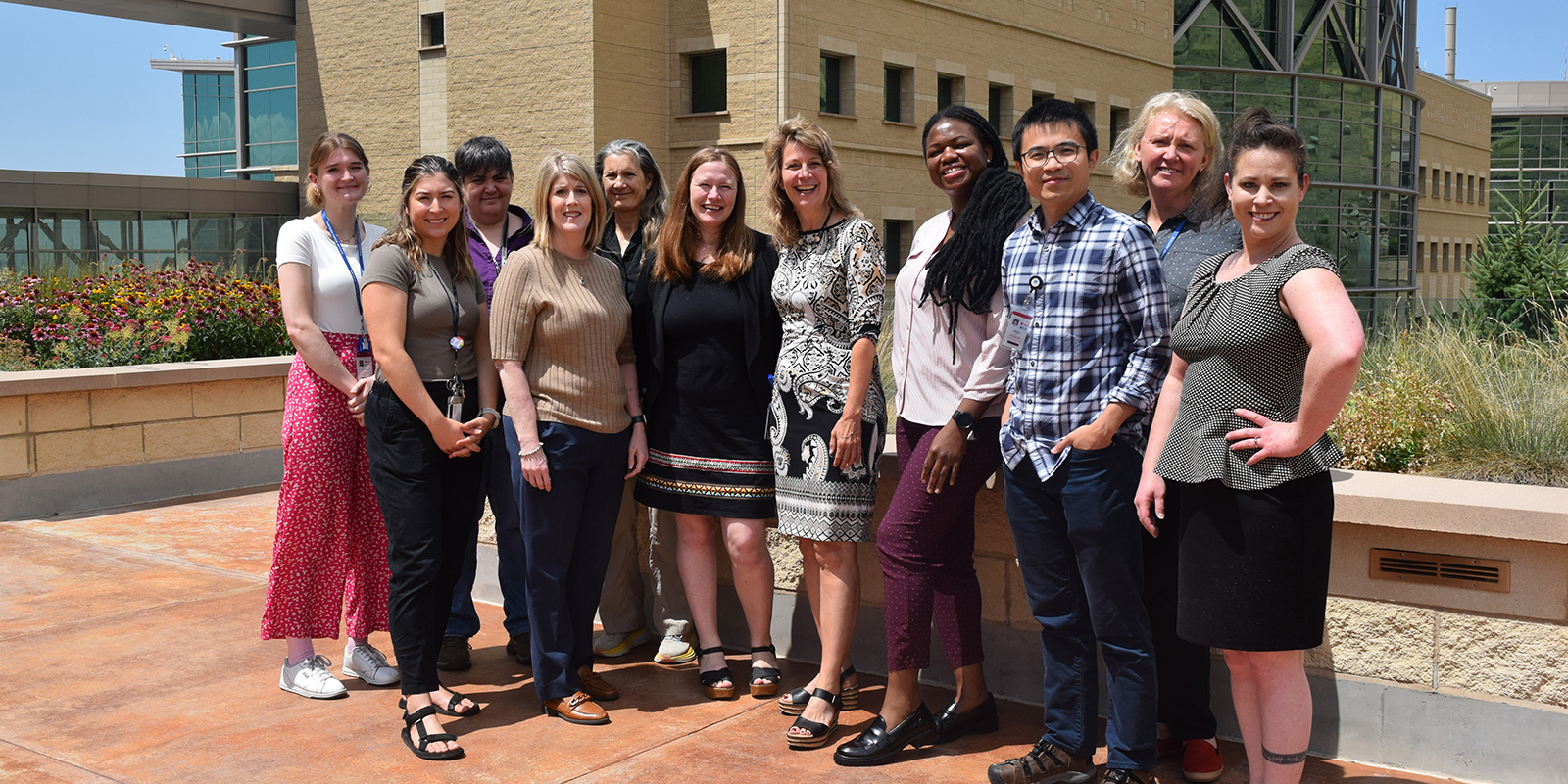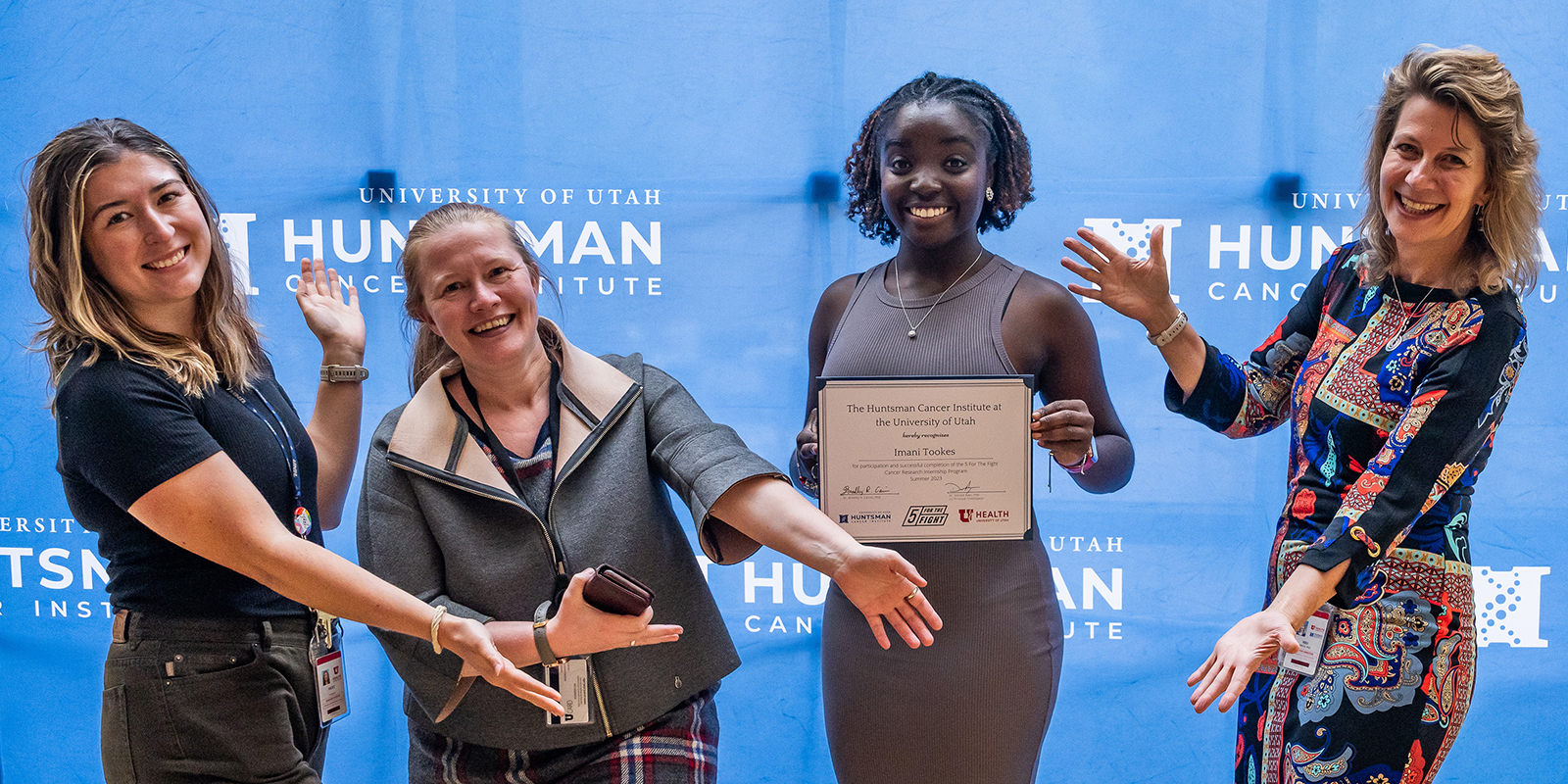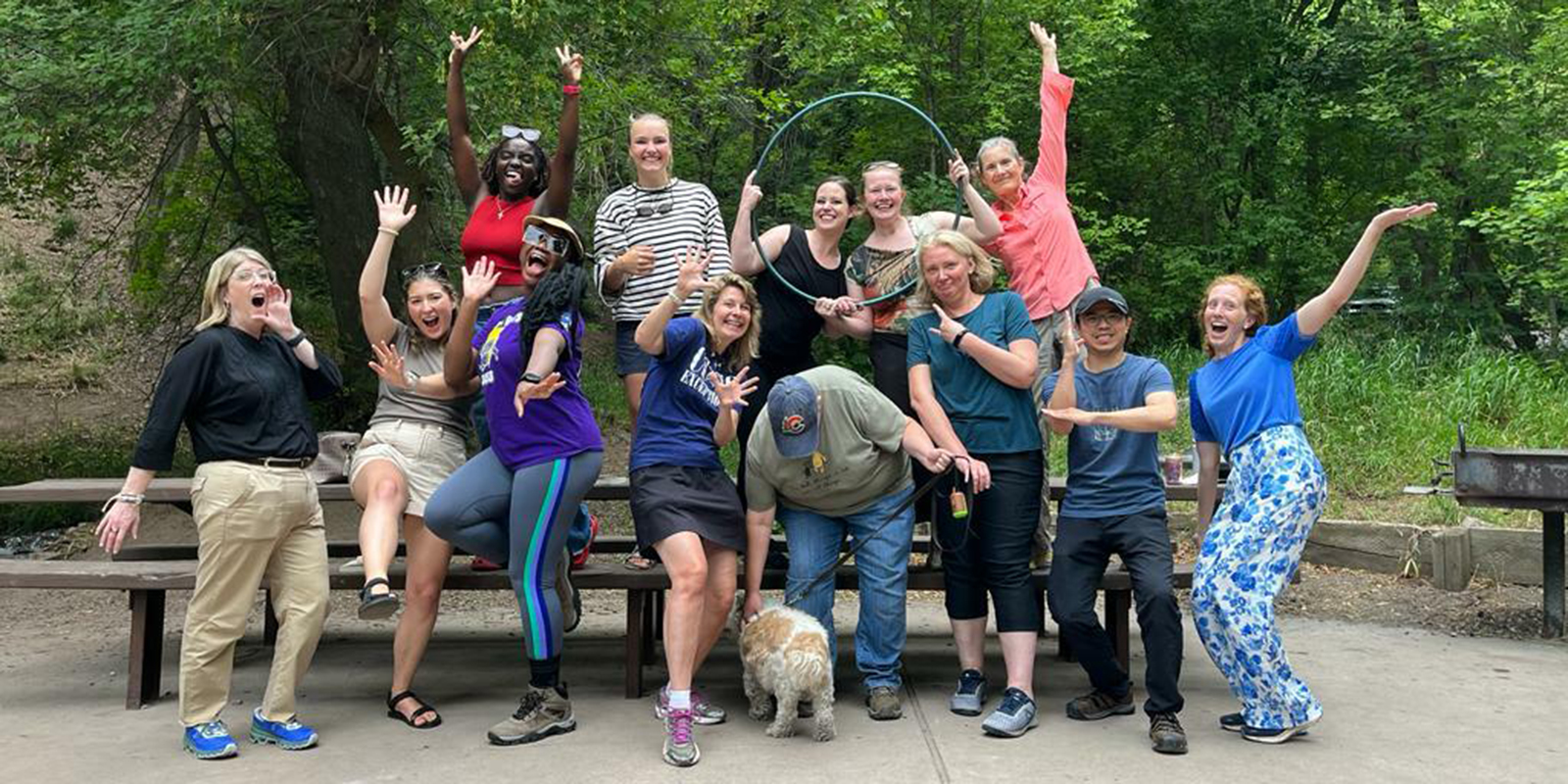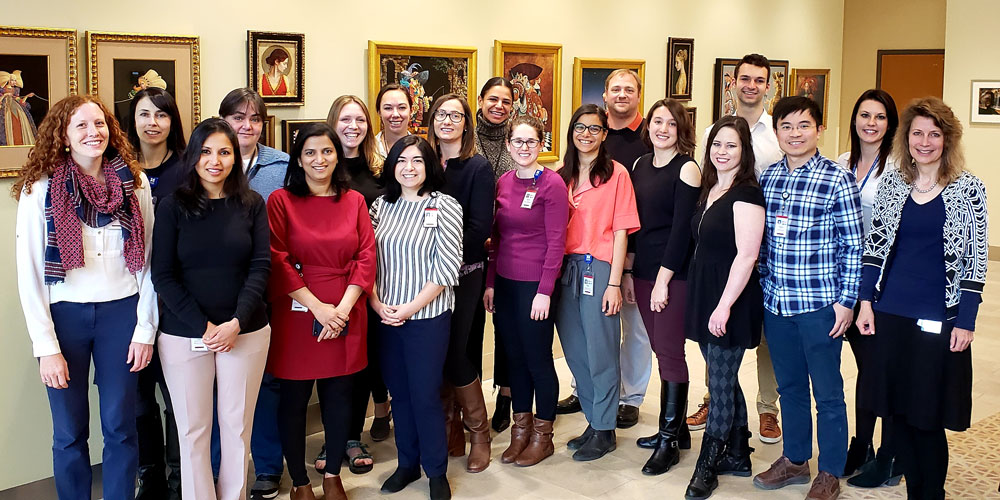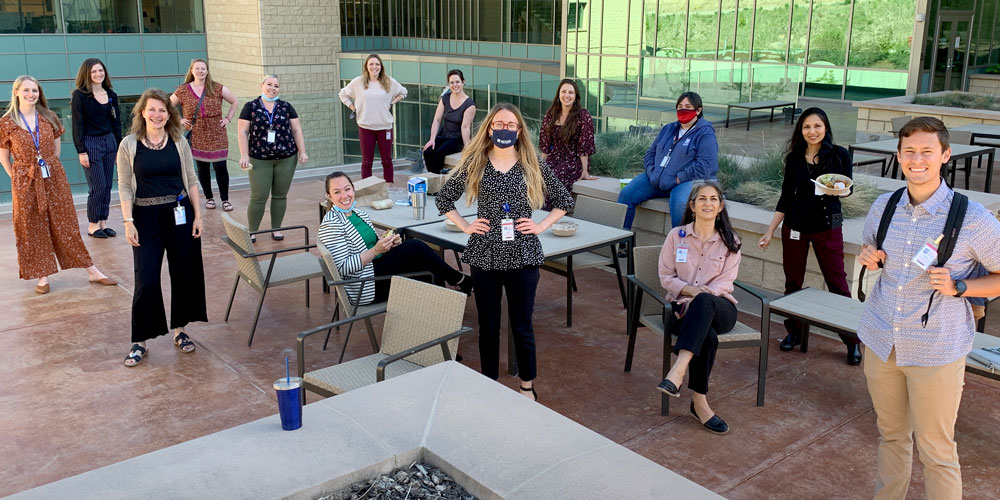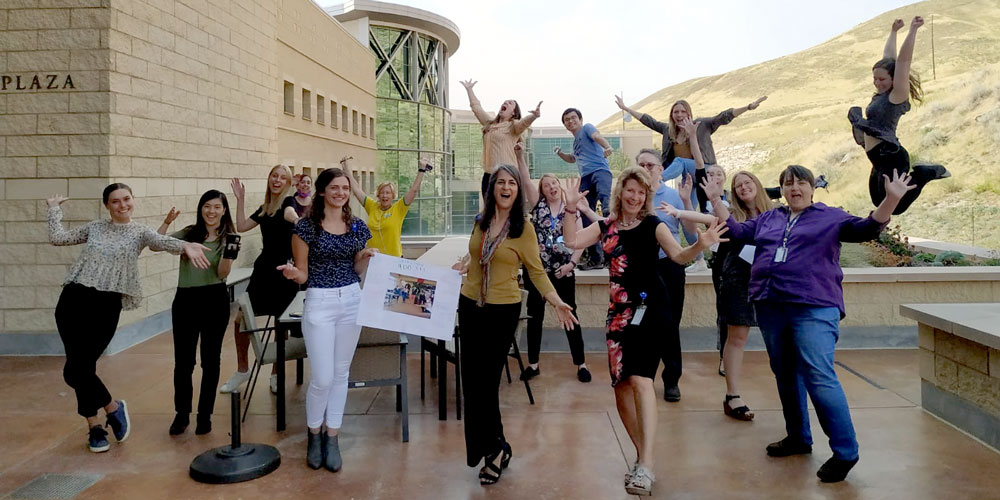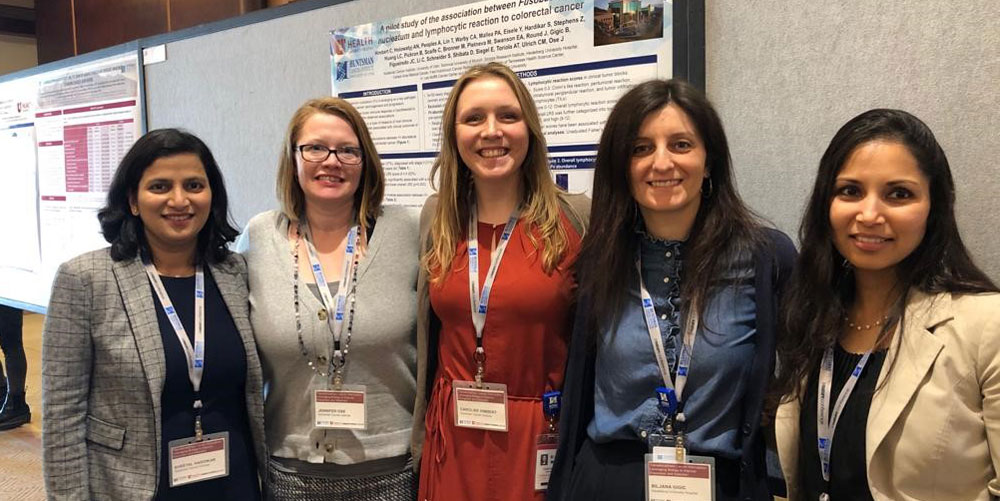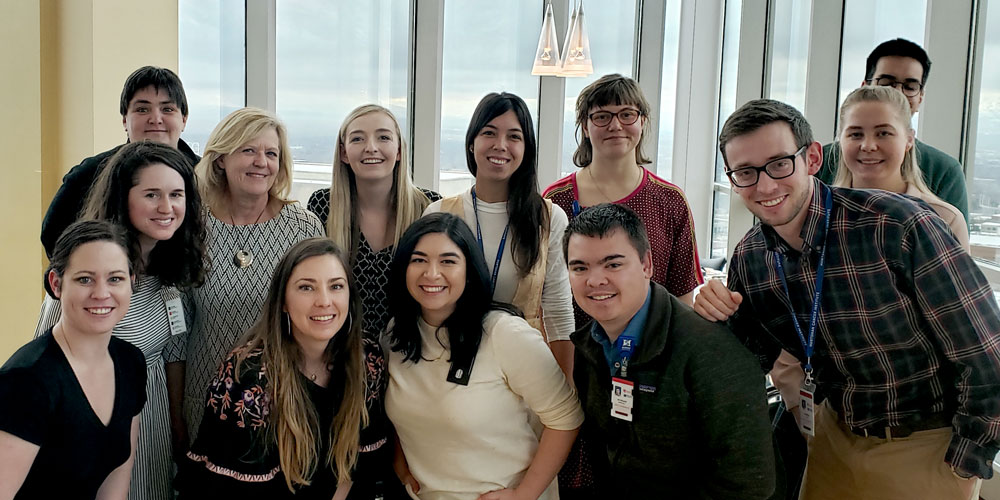
Ulrich Group

Ulrich Group
What does it mean to be a team member in the Ulrich Lab?
We are a highly motivated group of people who bring their energy, enthusiasm, and expertise to the table to conquer cancer! We use largely epidemiologic study designs but have also led important clinical trials with exercise in oncologic settings. Working for the cancer center director means to engage in a lot of large-scale team science and being able to connect with numerous research groups locally, nationally, and internationally. We work with clinicians and basic scientists and we value everyone’s contributions, whether you are a study coordinator, statistician, intern, postdoc or faculty member. Our alumni have gone on to do great things—many are faculty at prestigious institutions. Consider joining us as a postdoc or research scientist! Below are some of the top research themes we tackle together. And see our publications (to date >450) to obtain an even better idea of our productivity in diverse areas.
Interested in joining the group? We are looking for a postdoc or research scientist with epidemiology background. Please contact Christy Warby or Jessica Hartle for additional information.
Transdisciplinary research in colorectal cancer outcomes and survivorship
Our group leads a transdisciplinary team of researchers from around the world. We join forces as part of the ColoCare Study, a multicenter, international cohort of colorectal cancer patients with a multitude of biospecimens and data collected over time. We have been doing exciting and innovative research, ranging from new ways to measure body composition, multi-omics investigations of cancer development and prognosis, and what patients can do for themselves to improve their health and well-being after a diagnosis of colorectal cancer. More than 3,500 patients around the globe participate in the ColoCare Study and it’s a wonderful resource for impactful research.
Molecular epidemiology of cancer prognosis & cancer development
One of the Ulrich group’s research areas is the molecular epidemiology of cancer, with emphasis on colorectal cancer. Molecular epidemiology utilizes state-of-the-art techniques to measure biomarkers and genetic factors as well as health behaviors to investigate their joint effects on disease risk. We have a strong focus on biomarkers of inflammation and angiogenesis, which have shown up as important markers, especially linking an inflamed adipose tissue and energy balance overall to colorectal cancer.
Our group employs a variety of laboratory techniques, including multiple-omics strategies (metabolomic, genomic, proteomic, epigenomic, and studies of the gut microbiome). For example, we recently published the first paper demonstrating that physical activity can help improve the microbiome among obese patients with colorectal cancer. Overall, our group focuses on research in diet, energy balance, and inflammation, as well as other pathways.
Obesity
Obesity can be a major driver of carcinogenesis (in particular for colorectal, esophageal, liver, and breast cancer after menopause), while physical activity is preventive for colorectal and postmenopausal breast cancer.
We are investigating multiple components of adiposity, physical activity, and energy balance, and their relation to cancer development and progression. For example, we have used metabolomics to discern differences in adipose tissue from inside the body (visceral adipose tissue) to that below the skin (subcutaneous adipose tissue) and shown there are major differences in inflammatory and other characteristics. We employ artificial intelligence and 3-D measurements of body composition to discern the obesity-colon cancer link beyond BMI. Some of our most exciting work is to study cross-talk between adipose tissue and tumors by collaborating with experts in mouse studies to integrate data across human (our lab) and preclinical studies (collaborators).
Neli Ulrich, MS, PhD
Executive Director,
Comprehensive Cancer Center,
Principal Investigator
neli.ulrich@hci.utah.edu
